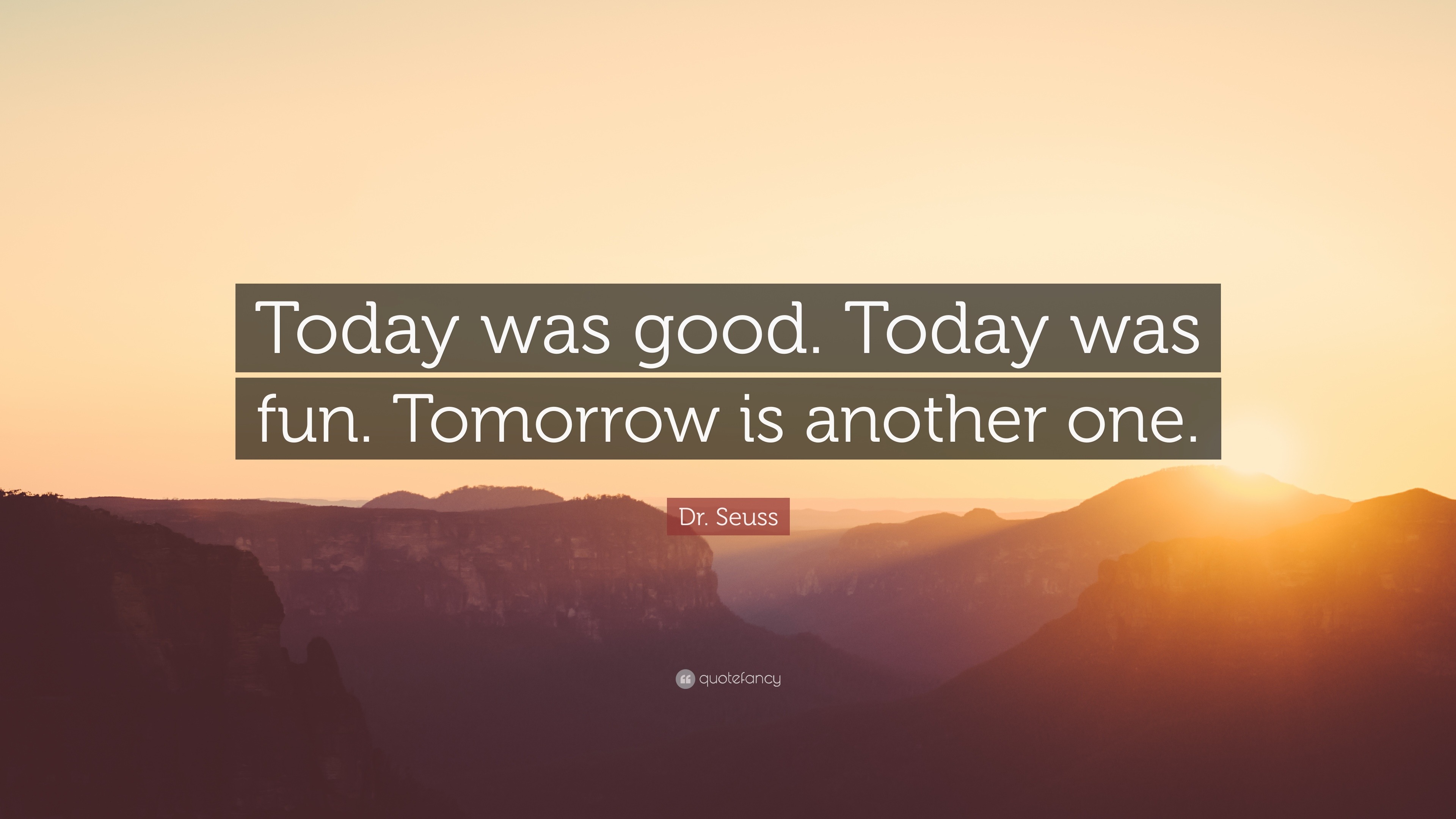
“Maybe we’ll have computers that look like postage stamps: we’ll be ripping them off and sticking them on stuff. In the decades ahead, who knows what form computing power might take? “It might be something you squeeze from a tube like grease,” Gordon speculates. Small, cheap and ubiquitousĪs computing technology continues to shrink in size and price, Gordon believes the desktop metaphor “is going to come crashing down.”

“These relics of office work have even invaded our pockets,” Gordon says, holding out his iPhone. Absurdly, the desk calendar and Rolodex remain fixtures in computer applications long after they’ve disappeared from real-world offices.
#ANOTHER TOMORROW CANT BE LIKE TODAY HOW TO#
“Twentieth century office workers already knew how to interact with trash cans, folders, printers and calculators,” Gordon explains.Ī generation later, the desktop metaphor is hopelessly antiquated. Twentieth century office workers already knew how to interact with trash cans, folders, printers and calculators (when the desktop interface was introduced). For a generation of first-time computer users, icons such as the paper clip and scissors rendered an intimidating new technology instantly accessible. Designed for office workers, it borrowed familiar objects from the white-collar workplace. In the early days of personal computing, when Xerox rolled out its pioneering Star interface, the desktop metaphor made perfect sense. He also thinks the dreary desktop interface - the dominant computing metaphor of the past 30 years - is on its last legs.


In a recent lecture titled “Mind-Reading for Robots,” he argued that human-computer interaction of the future will look a lot like the human-human interactions of today. “You don’t type into it you talk to it as if it were a person.” (Ideally, it won’t be prone to psychotic malfunctions.)Ī research associate professor with USC’s Institute for Creative Technologies, Gordon is an expert in storytelling and machine intelligence. Remember Star Trek and 2001: A Space Odyssey? “The whole spaceship is the computer in this model,” says Gordon. USC computer scientist Andrew Gordon predicts human-computer relations in the next few decades could actually bear a striking resemblance to how 1960s-era sci-fi filmmakers imagined them. Decades from now, how will we communicate with our smart devices? Probably the same way we communicate with the real people in our lives today.


 0 kommentar(er)
0 kommentar(er)
